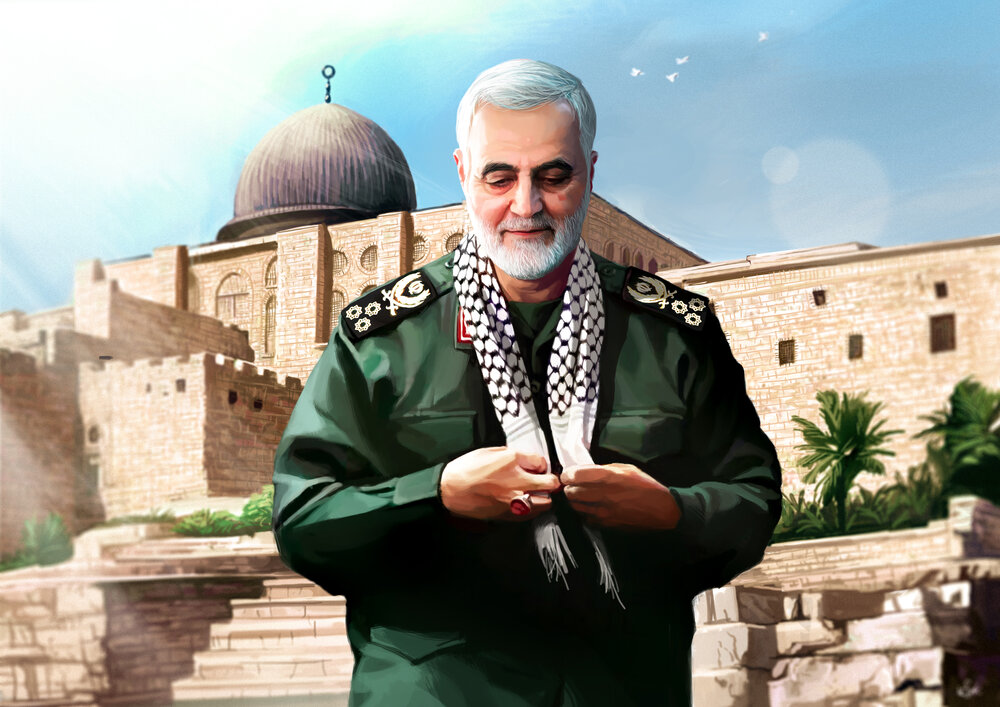The principles Gen. Soleimani stood for are alive: peace activist
‘General Soleimani was known as a strong opponent of terrorism’

TEHRAN - Robert Fantina, an American-Canadian peace and social activist, tells the Tehran Times that says General Soleimani was assassinated in a terrorist attack “but the principles he stood for are” are alive.
Fantina, who also serves on the boards of “Canadian Voices for Palestinian Rights”, says, “The United States had an uneven relationship with ISIS, but Iran and General Soleimani were unequivocal.”
Following is the text of the interview:
Q: Why Americans were so hateful from General Soleimani?
A: It isn’t the United States public, but the U.S. government that hated General Soleimani. Some citizens, if they have even heard of the general, hate him because they believe U.S. propaganda. U.S. government officials resent the Iranian government, and all its officials, for two basic reasons. First, the people of Iran overthrew the cruel, repressive puppet government installed by and supported by the U.S. Second, Iran rivals apartheid Israel as a powerful nation in the Middle East, and the U.S. only allows nations to have power if they will do the U.S.’s bidding; Iran refuses. Therefore, U.S. government officials demonize all Iranian officials, and a strong, powerful and much-respected man such as General Soleimani is beyond what U.S. officials can tolerate.
Q: Describe Gen. Soleimani’s role in fighting terrorism and defeating ISIS in the Middle East?
A: General Soleimani was known as a strong opponent of terrorism, and worked with officials from other countries to defeat ISIS. The United States had an uneven relationship with ISIS, but Iran and General Soleimani were unequivocal: ISIS must be stopped. The U.S. has fostered terrorism throughout the Middle East, from its invasion of Iraq to its support for anti-government forces in Syria, causing untold suffering throughout the region. General Soleimani was an ally to those who oppose terrorism.
Q: Have the world and its legal bodies been acting effectively in condemning Washington’s terrorist action in assassinating Soleimani?
A: No. There should have been an international outcry against this criminal action. The assassination of General Soleimani was a gross violation of international law, yet the officials of most nations were mainly silent about it. Those officials may think it was in their best interests to say nothing, because if they spoke, they might risk angering the U.S. However, they should be aware that allowing the U.S. to commit such a crime with complete impunity only means that, should one of their officials displease the U.S., the same fate may await him or her.
Q: Mourning for Soleimani was unique inside and outside Iran. And even different nations express their sorrow on his anniversary. What message does this support convey to the world, particularly the U.S. and the Zionist regime?
A: General Soleimani is dead, but the principles he stood for are not; if officials in the U.S. believed that by killing him they would break the Iranian spirit, or remove the only capable leader in the nation, they were mistaken. His legacy of loyalty to Iran and hostility to anyone who threatens it lives on not only in the leadership of the nation, but with Iran’s people. The U.S. and the Zionist entity did themselves no favor, and gained no advantage, by this criminal assassination.
